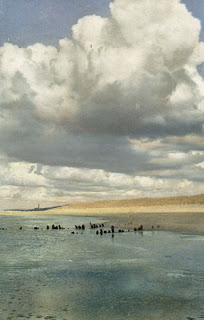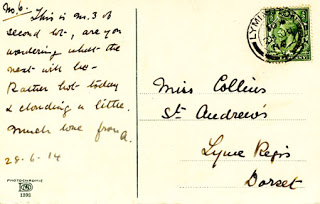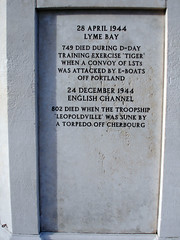As part of my forthcoming exhibition, I’ve been purchasing a few postcards for a piece of work, one which mirrors previous works I’ve made with postcards of World War One soldiers. One of my recent acquisitions can be found below.
The postcard shows a quiet, tranquil beach scene, which when one looks at the reverse becomes particularly poignant.
It was posted in the summer of 1914, just a few weeks before the outbreak of World War One. What’s more, the date at the bottom, 28th June 1914, is the date that Archduke Franz Ferdinand, heir apparent to the Austro-Hungarian throne was assassinated in Sarajevo.










